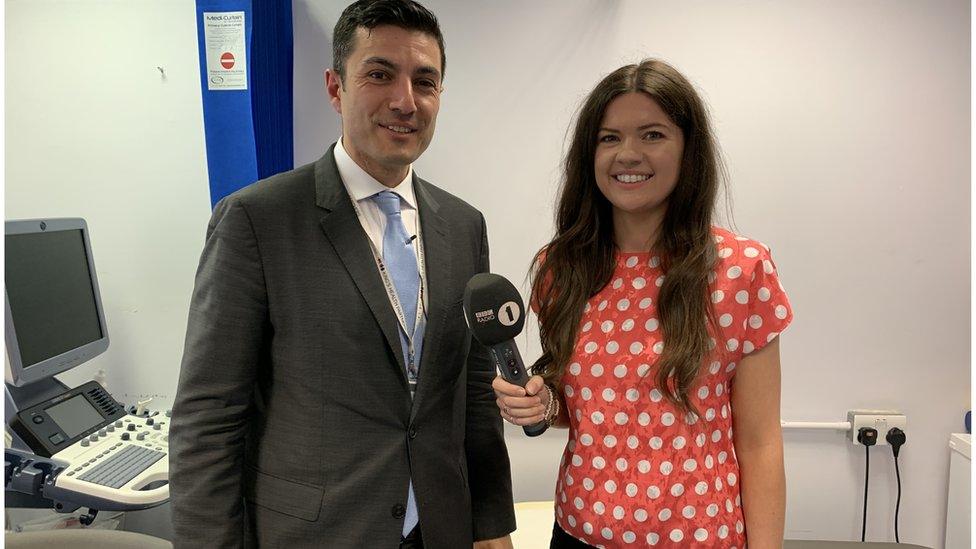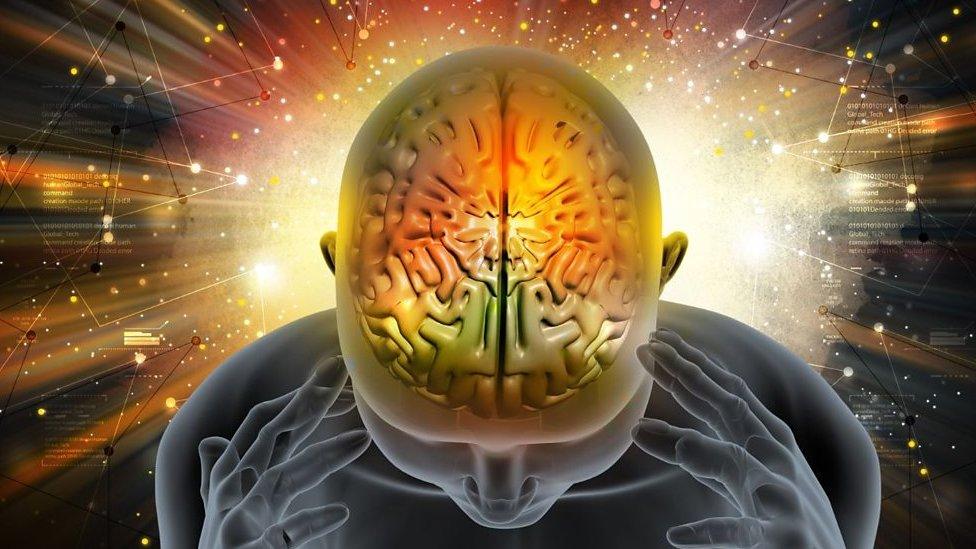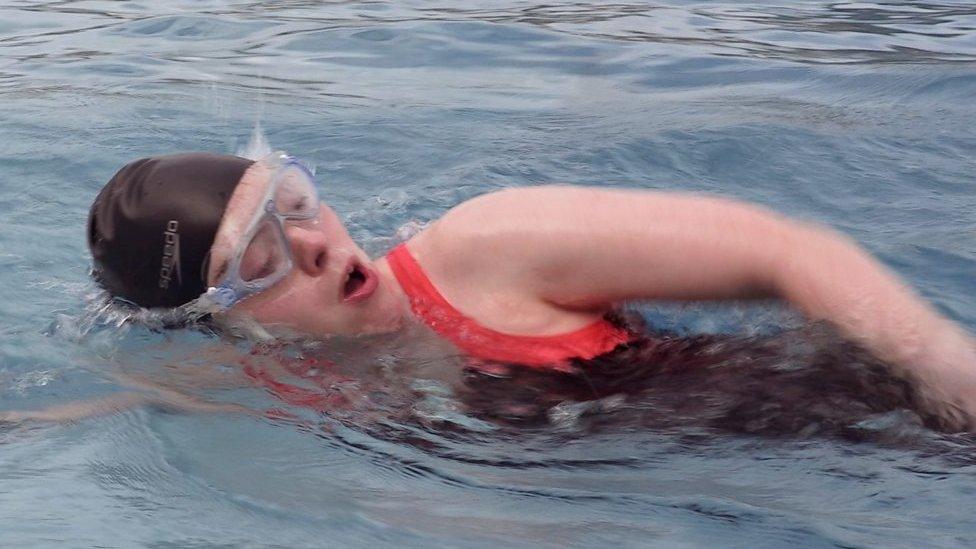Migraines: Calls for 'life changing' drug Aimovig on NHS in England
- Published

People who suffer from chronic migraines are calling for a new drug to be offered on the NHS in England.
The monthly injection of Aimovig has been described as "life-changing" by those who have tried it.
If it gets approved, it will be for people who have tried other preventative treatments unsuccessfully.
NICE - which gives advice on healthcare - rejected the drug for England on cost grounds in January, but the NHS in Scotland approved it recently.
Migraines affect around 1 in 7 people, external, according to the National Migraine Centre.
More women get them than men, and they usually start to affect people when they're teenagers.
Radio 1 Newsbeat spoke to sufferers for our latest documentary, which you can watch below. They told us whatever you do, don't ever refer to the condition as "just a bad headache".
Allow YouTube content?
This article contains content provided by Google YouTube. We ask for your permission before anything is loaded, as they may be using cookies and other technologies. You may want to read Google’s cookie policy, external and privacy policy, external before accepting. To view this content choose ‘accept and continue’.
"When I have a migraine I can't see, any noise gives me excruciating pain, foreign smells hurt, light is a definite no-go, I get really dizzy and I can't stand up," 28-year-old Nathan Gayle tells Radio 1 Newsbeat.
The Londoner gets around 20 headache days a month.
"I have tried so many types of medications - I've not found anything that can stop it or prevent it. If Aimovig worked, it would change my life."
This is what happens when you have a migraine
Nathan was a classroom assistant but had to give up teaching because he was having so much time off.
"I was getting migraines so frequently and the intensity was so high that it wasn't fair on the school, the children I was working with or myself."
"Depression is definitely something I feel during an episode," Nathan says. He says he hates feeling isolated while stuck in a darkened room.

Migraines: The facts
1 in 7 people are affected by migraines globally
1 in 5 women experience them
1 in 15 men get them
Some people with migraines get visual disturbances - known as aura - such as seeing stars or flashing lights, or even experiencing temporary blindness
Other people feel dizzy, get pins and needles or vomit
Sources: National Migraine Centre and NHS


Dr Jess Briscoe admits it's hard to find a treatment that genuinely works
There is no known cure for migraines. People normally treat them with over-the-counter painkillers, but often the symptoms are too severe for those drugs to work.
Some patients have reported botox and transcranial magnetic stimulation working, but everybody reacts in a different way.
"We tend to borrow things from other areas of medicine," explains Dr Jess Briscoe from the National Migraine Centre.
"Heart medication, anxiety medication - epilepsy medication we use a lot."
She hopes Aimovig - which is also known as Erenumab - will be able to help many people.
'Swimming in cold water helps stop my migraines'
In the US, where it is available widely, there is evidence it can reduce the frequency of migraine attacks significantly. It works by blocking the protein thought to play a major role in starting an attack.
Getting their lives back
The National Migraine Centre recently did a survey of just under 2,000 migraine and headache sufferers.
Most of them - 84% - said their migraines or headaches have impacted their mental health, and 65% linked their condition with experiencing depression.

Consultant Neurologist Giorgio Lambru and Newsbeat reporter Shiona McCallum
Dr Giorgio Lumbru from Guys and St Thomas' NHS Foundation Trust is already prescribing Aimovig at its Chronic Pain Management and Neuromodulation Centre.
"For the first time we have a specific treatment designed for migraine that works really well," he says.
"Being able to improve the quality of life of patients for whom there was nothing else to try has been a great satisfaction.
"The drug is injected under the skin once a month and it acts as a preventative treatment.
"If you look at data you see patients that fail all the other treatments can have their life back when they use Aimovig."


Follow Newsbeat on Instagram, external, Facebook, external, Twitter, external and YouTube, external.
Listen to Newsbeat live at 12:45 and 17:45 weekdays - or listen back here.
- Published20 May 2019

- Published21 May 2019

- Published8 April 2019

- Published7 April 2019

- Published7 September 2018

- Published30 November 2017
